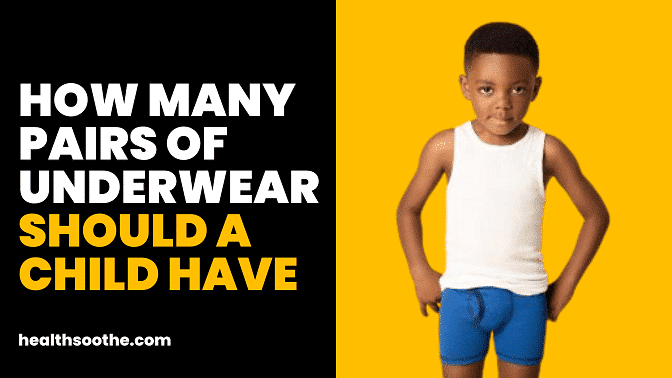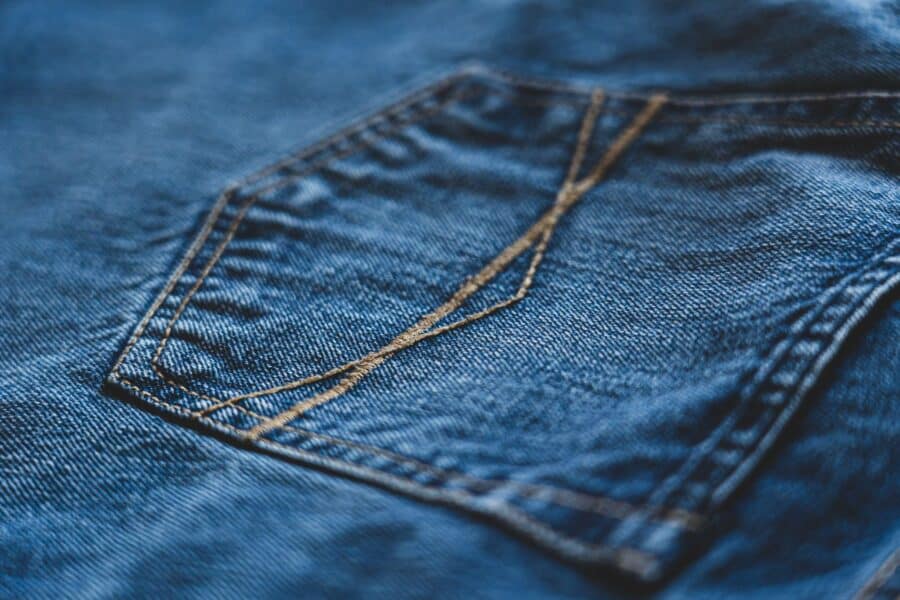How Many Pairs of Underwear Should a Child Have? - A three-week supply of underwear serves as a solid general guideline. This quantity of underwear, which lasts for about a month, totals roughly 20 pairs. However, even this sum may be too much for some moms.
To learn more about other popular comfortable underwear and their reviews click here
Children now have access to an increasing number of underwear sets since there are people who provide them.
So even if you may have certain notions, everyone else may have the same ideas, and children may have underwear at any time, anywhere.
How Many Pairs of Underwear Should a Child Have?
Are your children's closets overflowing with underwear? Do you ever question if they really need everything you see in their drawers?
Maybe you've tried decluttering, but you still believe your children have too many pairs of underwear. I am aware that I have done all of these things.
I've gotten rid of a number of bin bags full of outgrown clothing and underwear during the last several months. I have donated the clothing to charitable organisations, friends, and relatives that have younger children, and I have sent the completely worn-out items to a recycling facility.
We still feel as if we have too much, however.
How many pairs of pyjamas does a child need?
1BabyList suggests keeping four sleepers in your baby's wardrobe, while 2BabyCenter says having between four and seven sets of jammies is best. There is no reason why four to five sets of infant sleepers wouldn't work for you if you have convenient access to a washing machine.
At what age should kids start wearing underwear?
2-3 years of age.
What age should kids start wearing underwear? Typically, parents begin to switch their kids from diapers to underwear when they are between 2 and 3 years old or when their toddler stops using diapers.
What are the pants rule for children?
The Underwear Rule is an easy method for protecting kids from harm. It is really straightforward: a child should not have their underpants touched by anybody else. And they should refrain from touching anyone else there.
Additionally, it aids in teaching kids that their bodies are theirs and that there are good and terrible secrets as well as good and bad touches.
How many clothes do kids need?
A child's requirement for clothing sets relies on:
- If you have a washing machine, you may desire more because you won't wash as regularly without one. Moreover, you want to wash your hands a lot.
- The little child's age
- How filthy the child is (or if they are infants, how much spit-up they produce or diaper blow-outs).
- Your spending plan—new clothing may be expensive!
- Do your children wear a uniform to school?
- Your wardrobe's storage capacity
How many clothes does a newborn need?
Most clothing is required for newborns since their body fluids are completely unexpected.
These ideals are obviously only based on my personal background and financial situation. Remember that even though we hauled our laundry to the laundromat for the first three years of our marriage, after I became pregnant, we did purchase a washing machine.
List of essential baby outfits
- 5 to 10 sleepers
- One or two decent clothes (you'll probably have more, but the truth is that kids usually wear sleepwear or onesies)
- 5–10 onesies - A lot of it is also weather-dependent. You'll have more onesies than sleepers if it's hot outside.
- Two pairs of socks
- Several pairs of shoes
When should kids start choosing their own clothing?
By the time they age three, most toddlers can put themselves together. When kids get to this age, they may choose the clothes they want to wear. In addition, this is often the age when you'll start to notice them become a bit picky about what they wear.
Before giving your child full authority over what they want to wear, you should think about waiting until they are 4 or 5 years old, advises the American Academy of Pediatrics.
However, because every child is unique, the "optimal" age varies from one child to the next.
Take your child along with you on shopping expeditions to help them develop their observational and decision-making abilities before letting them choose their own clothes.
Why should children be allowed to wear anything they want?
You might want to think about letting your youngster choose their attire for the following reasons:
- Clothing allows self-expression
Your child's choice of clothing choices is a reflection of who they are as a person. Your child will want to communicate how they feel as they learn what they like (in terms of colours, music, and shows, for example), and the clothes they wear could be one of the ways they accomplish this.
- Build's confidence
Giving your kid the freedom to choose their own clothes will make them feel more accomplished. Encourage your child to wear the clothing if they are unsure about it and provide your support to help them acquire confidence in their choice.
- Help to improve the sense of freedom
Giving your child a say in what they wear will help them feel more independent. Allow them to choose a few items they want to buy at first, and let them see you pay for the clothes so they can have a sense of how it works. This will ultimately teach kids how to purchase economically for themselves.
How to handle the issue when your child begins to select his or her own clothes
- Offer them choices.
Give your youngster the freedom to select from a range of choices. Start by offering them two or three selections rather than allowing them to select anything from their whole closet.
- Be persistent
It will probably be hectic the first few times you let your child choose their own attire. Keep in mind to steer their decisions without being intrusive while being patient with them.
- Practising is essential
Start by allowing your kid to choose what to wear within the home. As they learn what fits them best and become more adept at matching ensembles, they can advance to choosing clothes for specific activities.
Final Reflections
It's time to start giving your child some influence over what they wear when you realize that they have begun to create their own opinions about how they want to appear. As each child is unique, this age may change.
But remember that as a parent, you still have the last word as you proceed. It shouldn't be too difficult for you to manage this transitioning stage as long as what they choose isn't really absurd. In fact, it may end up being a ton of fun for the two of you! Good fortune!
Additional resources and citations
- 1
- 2
The content is intended to augment, not replace, information provided by your clinician. It is not intended nor implied to be a substitute for professional medical advice. Reading this information does not create or replace a doctor-patient relationship or consultation. If required, please contact your doctor or other health care provider to assist you in interpreting any of this information, or in applying the information to your individual needs.




